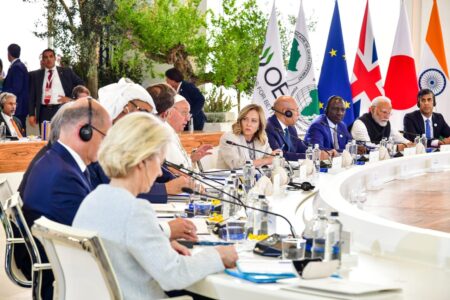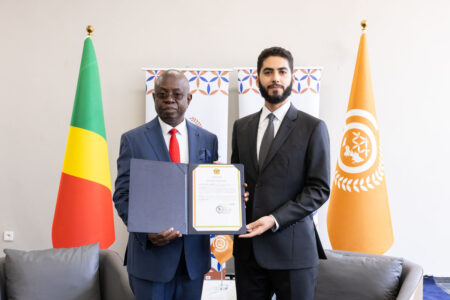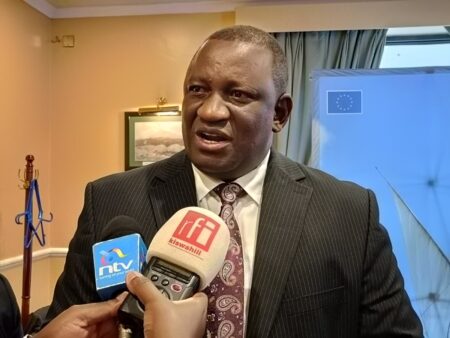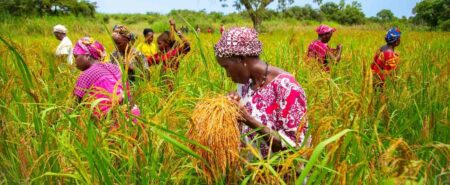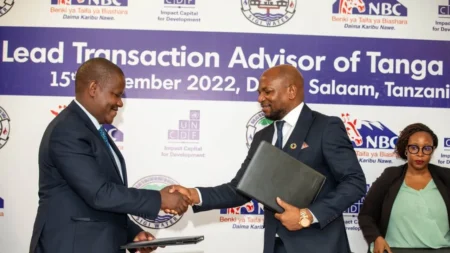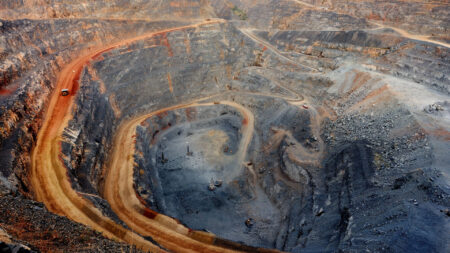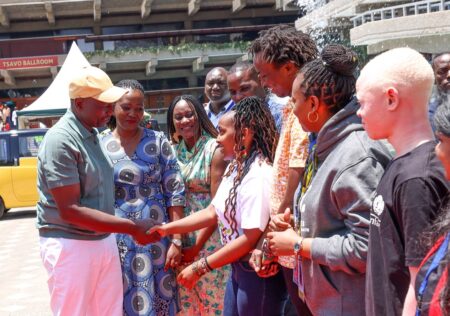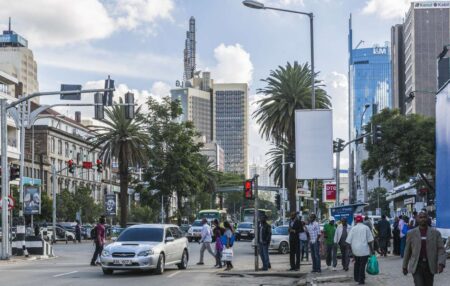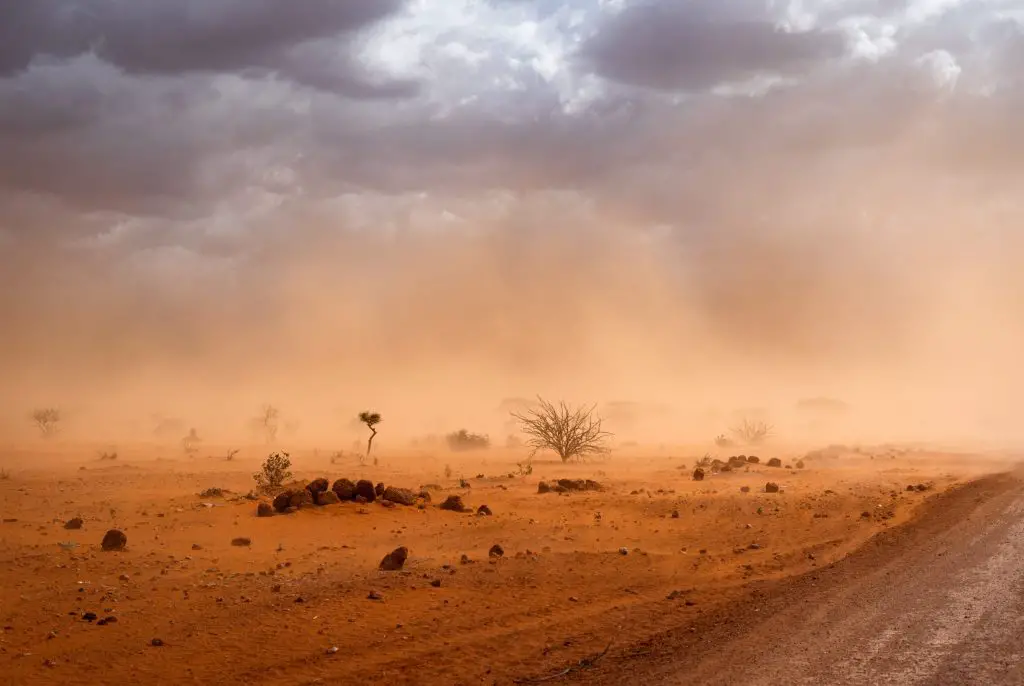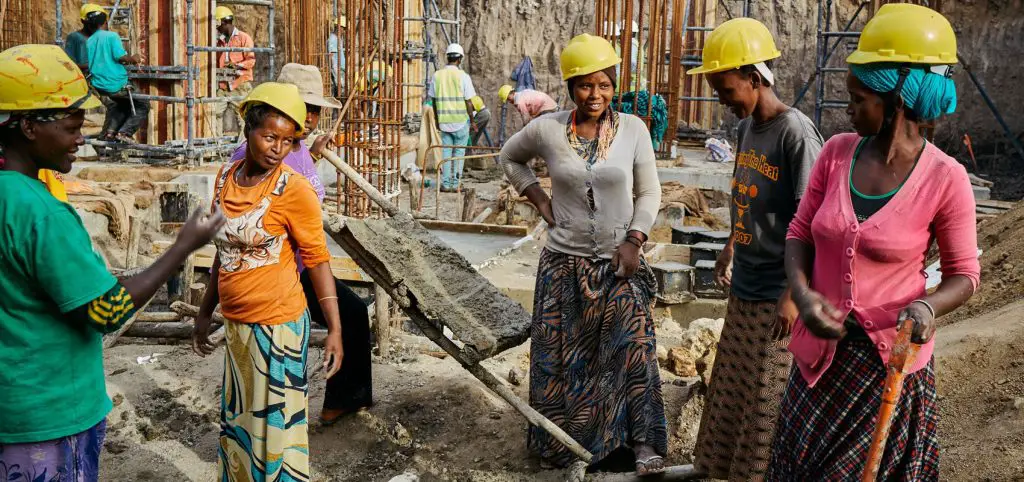- Africa’s new dawn: the rising role of digital and AI in agriculture
- Can Dangote Refinery Transform Africa Energy Ambition
- Gallup Survey: 80 per cent of Kenyan Workers Are Disengaged and Seek New Opportunities
- Madagascar Man Freed from 5KG Tumor After 15-Year Struggle
- How women in Africa are perceived and treated
- Sugar consumption in Kenya to Increase to 1.23 Million Tonnes
- Can Somalia and Turkey Oil deal Bring Change in Somaliland
- Remittances to Kenya dropped to $371.6 million in June, marking a six month low
Browsing: Sustainable Development
- President William Ruto of Kenya urges for reforms to the global financial system to provide Africa with access to long-term concessional finance and greater decision-making power.
- He highlights the critical need for investments in Africa’s infrastructure and clean energy projects to drive sustainable development and economic growth.
- The G7 Summit sought partnerships with African nations, aiming to bridge the continent’s infrastructure gap and support its development goals.
At the 50th G7 Summit held in Borgo Egnazia, Italy, President William Ruto of Kenya made a compelling case for the transformation of the global financial system to better serve Africa. Addressing an audience of world leaders, Ruto called for reforms that would grant the Global South, particularly Africa, access to long-term concessional finance and a greater voice in international decision-making processes.
“Reforming the multilateral global financial system is crucial for enabling Africa to access concessional, long-term, and agile finance,” Ruto emphasized. He …
- DRC Joins the Organisation of Southern Cooperation after depositing the Instrument of Acceptance
- Secretary-General Manssour Bin Mussallam received the Instrument of Acceptance.
- The OSC, aimed at fostering cooperation and development among Southern Hemisphere countries
The Republic of the Congo has consolidated its full membership status of the Organisation of Southern Cooperation (OSC) by depositing the Instrument of Acceptance by Daniel Owassa, Ambassador of the DRC to Ethiopia and Permanent Representative to the African Union.
Secretary-General Manssour Bin Mussallam received the Instrument of Acceptance at a handover ceremony yesterday at the OSC Headquarters in Addis Ababa.
The Republic of the Congo is a founding member of the OSC. The depositing of the Instrument of Acceptance signifies the completion of the full membership process by countries in the Global South.
Read Also: SkyPower, AFC, and DRC join forces for $2.3Bn Green Giant project
H.E. Bin Mussallam said the occasion marked the beginning …
- Kenya looks to rise on its estimated $38.4 million blue economy investments to grow sector revenue to $921 million annually.
- Africa, with its vast coastline and rich marine resources, is poised to harness the immense potential of the blue economy.
- BlueInvest Africa is a business-to-business event that aims to catalyse the growth of Africa’s blue economy through strategic investments.
The Kenyan government is looking to ride on its estimated $38.4 million (KES 5 billion) investments in the blue economy initiatives to increase revenue to $921 million (KES 120 billion) annually.
This will be a threefold increase from the current $288.6 million (KES 37.6 billion) that the state generates from the blue economy.
The Cabinet Secretary in the Ministry of Mining, Blue Economy & Maritime Affairs, Salim Mvurya, said that part of the plan was to map the fisheries’ infrastructure across the country.
“We want to increase the revenue to Sh120 …
- The African Development Bank has donated $20 million to Senegal to enhance food security and support small producers post-COVID through the PRESAN-PC project.
- Infrastructure development, including agricultural boreholes and solar-powered systems, aims to increase farm production and resilience to climate change.
- The project benefits vulnerable women and youth, includes contributions from various sources, and impacts 31,000 households across multiple Senegalese regions.
In an ambitious move to ensure food security and enhance the livelihoods of its small producers, Senegal has received a significant financial boost. On a notable day in March 2024, the African Development Bank Group allocated a $20 million donation to the nation for the Post-Covid Food and Nutrition Security Enhancement Project (PRESAN-PC).
The initiative aims to transform Senegal’s agricultural landscape, benefiting vulnerable women and young people through increased farm production and income.
African Development Bank’s $20 million donation to Senegal
The African Development Bank’s generous donation comes from …
- This project is expected to improve and increase water supply from 96 per cent to 100 per cent in Tanga City.
- The government of Tanzania adopted the Alternative Project Financing (APF) strategy in 2021
- Mark Napier, CEO of FSD Africa, commended the collaborative effort behind the Tanga UWASA Green Bond.
The first ever Sub-national Water Infrastructure Green Bond in East Africa, worth $20.8 million, has been issued by Tanga Urban Water Supply and Sanitation Authority (Tanga UWASA), an autonomous water utility.
This landmark transaction would fund the expansion and improvement of sustainable water supply infrastructure and environmental conservation within Tanga City and nearby townships. The 10-year project revenue bond listed at the Dar es Salaam Stock Exchange (DSE) offers an attractive interest rate of 13.5 per cent per annum to be paid semiannually.
The government of Tanzania adopted the Alternative Project Financing (APF) strategy in 2021 because of the need …
- Tanzania’s Mining Act, which governs the exploration, extraction, and processing of minerals, is crucial in shaping the industry’s landscape.
- Since gaining independence, Tanzania’s approach to mining legislation has evolved significantly.
- The Mining Act in place today in Tanzania was designed to create a conducive environment for mining investments while safeguarding the nation’s interests and promoting sustainable development.
Tanzania’s mining sector is a significant pillar of the economy, contributing to the country’s GDP, employment, and foreign exchange earnings. The Mining Act, which governs the exploration, extraction, and processing of minerals, is crucial in shaping the industry’s landscape.
Over time, evolving challenges and the dynamic global mining environment have necessitated periodic reviews and amendments to this legislation. The latest proposed bill seeks to amend the Mining Act to address current issues, enhance sector governance, and ensure the sustainable development of Tanzania’s mineral resources.
Historical Context and Evolution of Mining Legislation in Tanzania
…- Youth leaders, entrepreneurs and policymakers presented the Africa Youth Climate Assembly Declaration to Kenya’s President William Ruto, and African Development Bank Group President Akinwumi Adesina.
- The declaration advocates for the accelerated establishment of a Global Green Bank and a New Global Financial Pact, aiming to prioritise young people and their interests in climate financing.
- During the Africa Youth Climate Assembly, a wide range of issues emerged including youth access to finance, Africa’s energy transition, the plight of millions displaced owing to the impacts of climate change and mobilisation of resources for sustainable development.
As the Africa Climate Summit draws to a close, a key highlight from the three-day summit is that Africa’s youth need to be more involved in the climate change conversation.
This, as youth leaders, entrepreneurs and policymakers presented the Africa Youth Climate Assembly Declaration to Kenya’s President, William Ruto, and African Development Bank Group President Akinwumi Adesina.…
Therefore, investing in pro-poor development projects is one of the best ways to address poverty and the cost of living in Kenya. Economic empowerment of the various groups can improve families’ lives and address the country’s ever-rising poverty levels. Kenya desperately needs a solution to poverty and the cost of living. Therefore, actualizing socio-economic development could prove a viable approach.…
Changes in the global food chain provide essential opportunities to enhance the profile of integrated thinking in Africa. Because these measures will benefit the whole planet, a collective responsibility remains necessary. Landscape-based initiatives and the scaling out of agro-ecological systems and restorative agriculture must be prioritized by African member states.
There should be cross-border collaborations in critical landscapes. Non-African partners and enterprises must also invest in regional systems strategies, focusing on yield and advancing all ecological systems. As investment in Africa’s agricultural industry grows, steps must be taken to avoid negative environmental consequences.
Everyone wants to live in a world with a healthy planet and people and planet. In Africa, this means people with access to healthy diets, economic growth, and development possibilities while interacting with the continent’s unique natural environments.…
- African nation’s like Rwanda are investing in top-notch ICT systems
- Industrialization in Africa is yet a challenge being tackled by most economies
- Despite the pandemic hitting global economies several African nations stood strong
Follow the numbers they say, if one wants to understand how Africa can go beyond the typical growth trajectory that does not commensurate with its natural capital and human potential to attain economic freedom. Sustainable development is rather crucial for Africa to attain. On that note, efforts such as Africa Continental Free Trade Area (AfCTA) are a tool the region employs to breathe life into that ambition.
Numbers point towards an exciting viewpoint that questions whether Africa can sustain its economic growth without adopting the best available, sustainable economic systems.
The region has been keeping a good track record over the past years. For instance, Tanzania—has become one of the fastest-growing economies in Africa—ascending towards a low-middle-income …





